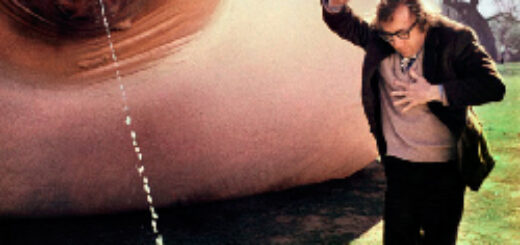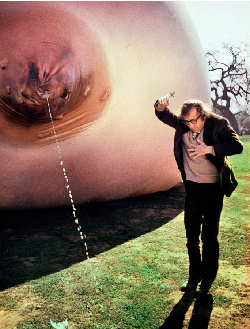Martha Thomases: Thanks For The Mammories
The doctor was over an hour late for my mammogram appointment this morning. The only magazines in the office were about decorating and polo, and my phone was being wonky, so I had a lot of time to think.
As you might expect, I thought about breasts. A lot.
Too much.
Specifically, I wondered why, despite our culture’s obsession with breasts, especially among the adolescent man-children who make so many of our commercially artistic decisions, no one (to my knowledge) had ever considered what a super-powered breast might be like.
Even without fictional help, breasts have a lot of power. As mammals, we use them to feed our young. Our patriarchal culture judges a woman’s value (in part) by the firmness, size and perkiness of her tits. While some people (including a fair number of women) think this gives women power, I have never perceived it this way. Instead, in my experience, men think the mere fact that I have them means they can remark on how much they do or do not like them.
I don’t know a single woman who hasn’t had a stranger say something about her breasts. While there may be some women who make similarly unrequested comments to men, I’ve never heard about any and must suppose it to be a much less common phenomenon. Telling me what he thinks about my body parts is one way that a man can tell me that he thinks I exist for his appraisal and approval.
What if my breasts could actually be a source of physical or metaphysical power? What if the more than 30-years exposure to radiation charged them up to affect me the same way that radioactive spider affected Peter Parker?
Would they shoot out webbing like Spider-Man does from his hands, but from the nipples instead? Would the webbing be edible, like Twizzlers?
Or would they shoot out death-rays?
Perhaps they would be malleable like Mr. Fantastic’s body, able to change shape and size to rope in criminals, or cushion a fall.
They might turn rock hard, like The Thing, and make my rib-cage impenetrable, so that no one can shoot me in the heart.
Or perhaps they could jiggle at super-speed, creating veritable earthquakes to knock my antagonists off their feet or allowing me to vibrate through walls.
Or they might grow massively in size and strength, like the Hulk, when I get angry, allowing me to use them to smash any cat-caller who gets in my face.
Alas, none of this happened to me.
I did get a clean bill of health, which is a good thing. I urge you to do the same.













